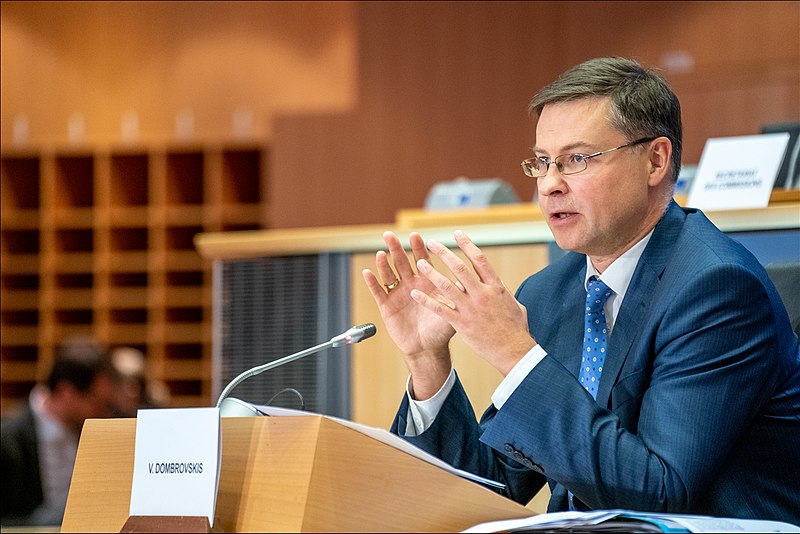
Thank you, Elisabeth. Good afternoon, everyone.
As the minister said, we have reached convergence on a number of key elements and principles for revising the EU's fiscal rules.
After many months of debate and consultation, this is a very welcome step forward.
Today's ECOFIN conclusions reflect the Commission's aim for a simpler system, greater country ownership and more latitude for debt reduction – combined with stronger enforcement.
They provide solid input for the Commission to advance with drawing up legal proposals, which we would aim to present soon after this month's European Council.
Overall, the objective is to have credible rules that are fit for the challenges that Europe faces.
There is still work to do on details and to reach convergence on some remaining open issues.
In any case, we welcome the Council's resolve to process the next steps quickly, with a view to concluding legislative work in 2023.
It is an ambitious timeline, but we think it is realistic to achieve.
On Europe's economy more broadly:
As you know, the Commission has forecast an improvement in prospects this year and a decline of inflation.
However, we should recall that core inflationary pressures are still with us. For the more positive economic outlook to remain valid, we rely on energy prices - particularly gas - staying low and not rising again.
One year after Russia began its brutal aggression against Ukraine, Europe has managed to diversify its energy sources and suppliers and largely reduced its dependence on Russian gas.
Along with capacity building, high storage and a mild winter, this has relieved pressure on EU energy prices.
Gas prices are now much lower, fluctuating around the same level as in autumn 2021.
It is in this context that the Market Correction Mechanism entered into force in mid-February. Since we are well below its trigger levels, it may be too early to draw lessons on this instrument's effectiveness to address possible vulnerabilities.
But it also means that so far, there have been no notable or significant consequences on our energy and financial markets.
We have got through the intensive first phase of the energy crisis. The European economy is no longer in severe downturn. It has recovered beyond its pre-pandemic level.
Correspondingly, the General Escape Clause will be disactivated by the end of the year.
This brings me to our fiscal guidance for 2024.
It takes the post-pandemic reality into account and provides certainty at an uncertain time.
The guidance is designed as a bridge between how the EU's system of fiscal rules has worked in the past and how the new one may work in the future.
It reflects the specific situation in each Member State as well as those elements of the Commission's orientations that are consistent with the existing legal framework.
Let me turn now to the Recovery and Resilience Facility:
Since the last ECOFIN, we have published four more positive preliminary assessments of payment requests – from Austria, Denmark, Slovenia and Spain.
We also published our first partially positive preliminary assessment – for the first payment request submitted by Lithuania. We have invited Lithuania to provide observations on the milestones that remain to be fulfilled.
However, while implementation of the RRF is progressing well, there are only three and a half years left to fulfil all milestones and targets. So every effort must be made to avoid backloading and postponing payment requests.
Regarding REPowerEU, time is of the essence for Member States to strengthen their recovery and resilience plans to include dedicated and ambitious REPowerEU chapters.
We would prefer to receive all revisions to national plans in one go, by the end of April.
Today, the Council also adopted a set of limited changes to Finland's Recovery and Resilience Plan.
Lastly: on Ukraine.
Just under three weeks ago, we marked a very sad milestone: one year since Russia started its barbaric war against a sovereign neighbouring state.
As a sign of solidarity with Ukraine, we have proposed renewing the suspension of import duties, quotas and trade defence measures on Ukrainian exports to the EU for another year. And we are working on deepening Ukraine's integration into the EU single market.
Regarding the EU's emergency financial support for Ukraine, the second disbursement under the Macro-Financial Assistance Plus instrument - €1.5 billion - is due to be made later this month.
So I explained to ministers the state of play with Ukraine's reform implementation for the second disbursement, and we are at the final stages of assessing the conditions for making a decision.
This will bring the EU's budgetary support paid to Ukraine to €4.5 billion in the first quarter of this year.
Thank you.
Photo by European Parliament from EU, Wikimedia commons.



































